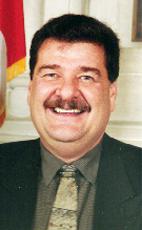Mr. Speaker, the headlines in the local newspaper said it all: “National Champions”. Indeed it was true of Brandon's own AAA Midget hockey team when it won the 2004 National Midget championship Sunday afternoon in the Kenora recreation centre.
I would like to send my congratulations to the coach, Craig Anderson, and the entire team for their outstanding effort. The Brandon Wheat Kings were clear underdogs, but true to prairie form, they overcame all adversity to clinch an unbelievable 2 to 1 overtime victory upsetting the heavily favoured Riverains du Quebec.
While it was a strong team effort that got the Wheat Kings to the final, it was team captain Taylor Langford's goal with 13 seconds left in overtime, and outstanding goaltending from Tyler Plante that lifted the team to the national championship.
Sunday's win is the first ever AAA Midget championship team from Brandon or indeed Manitoba. Congratulations. Brandon is proud of them.

